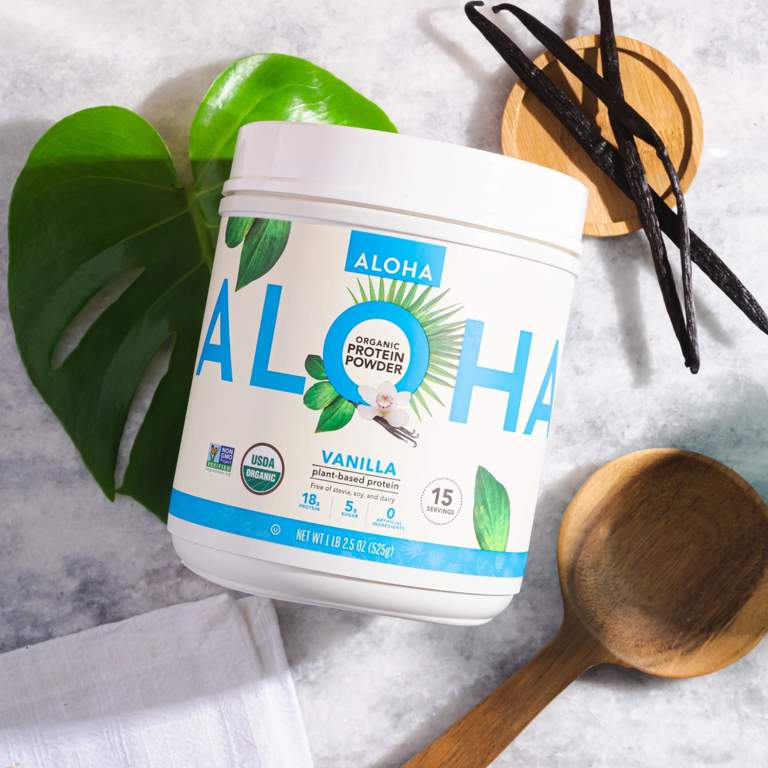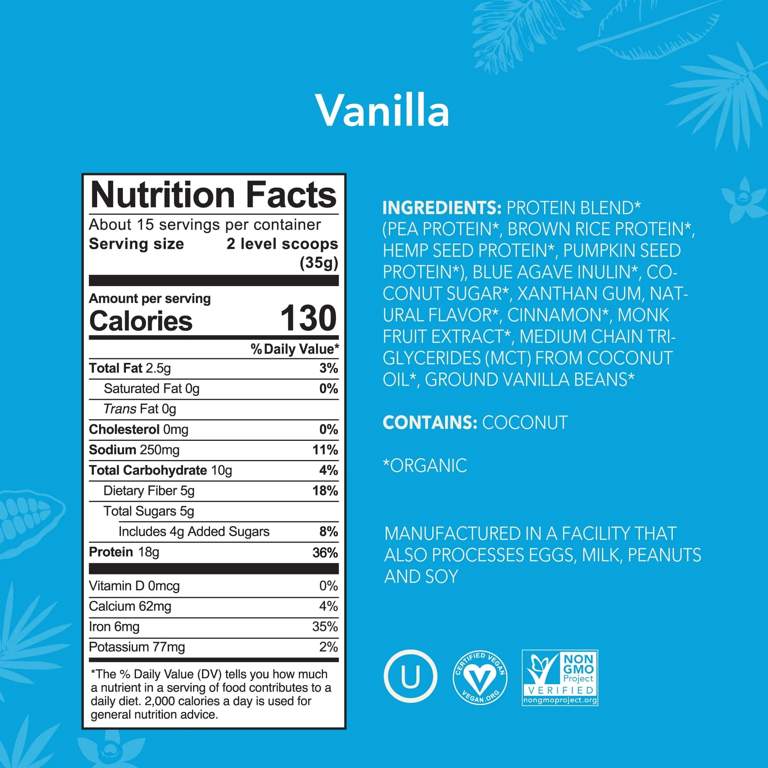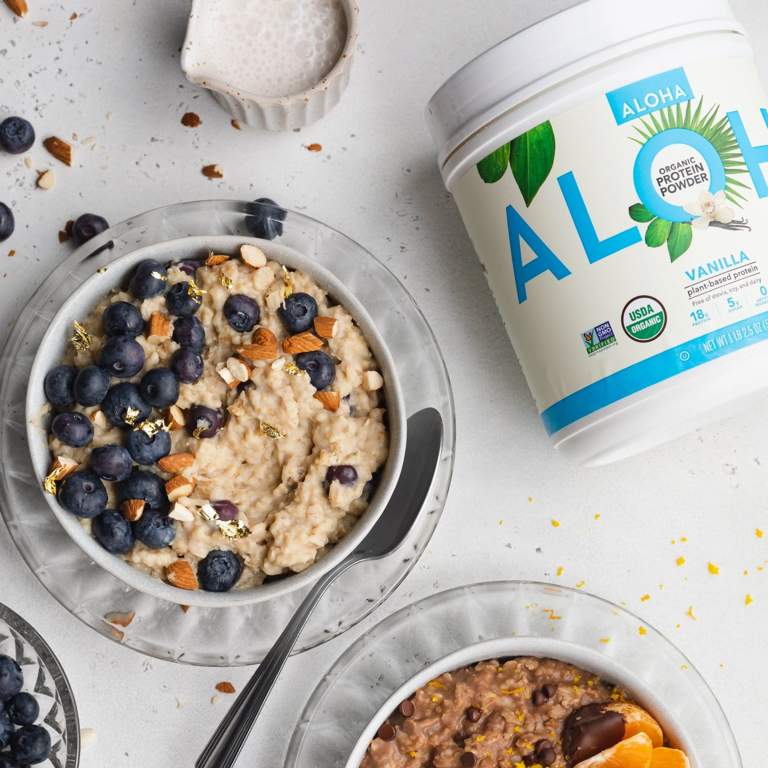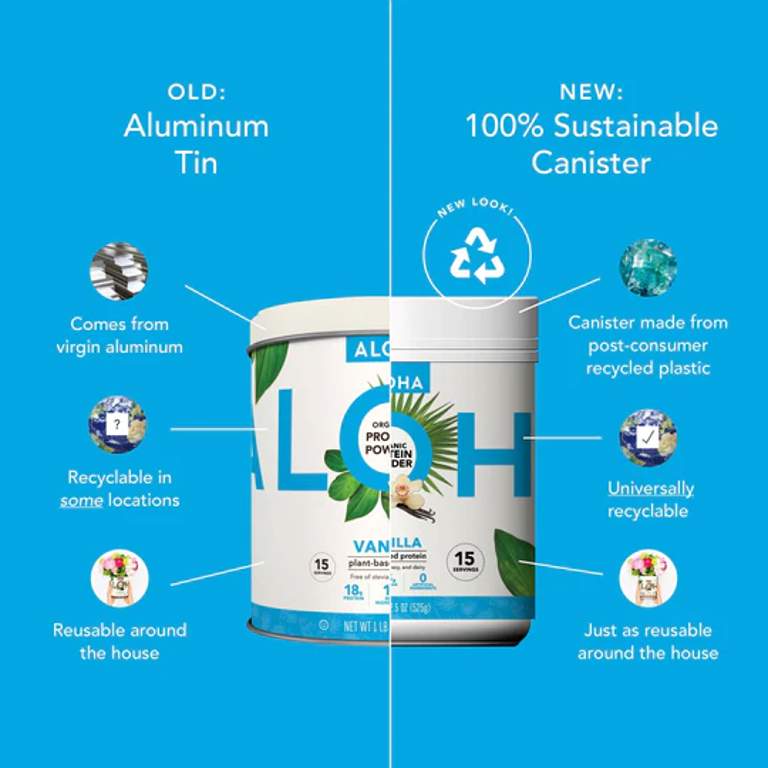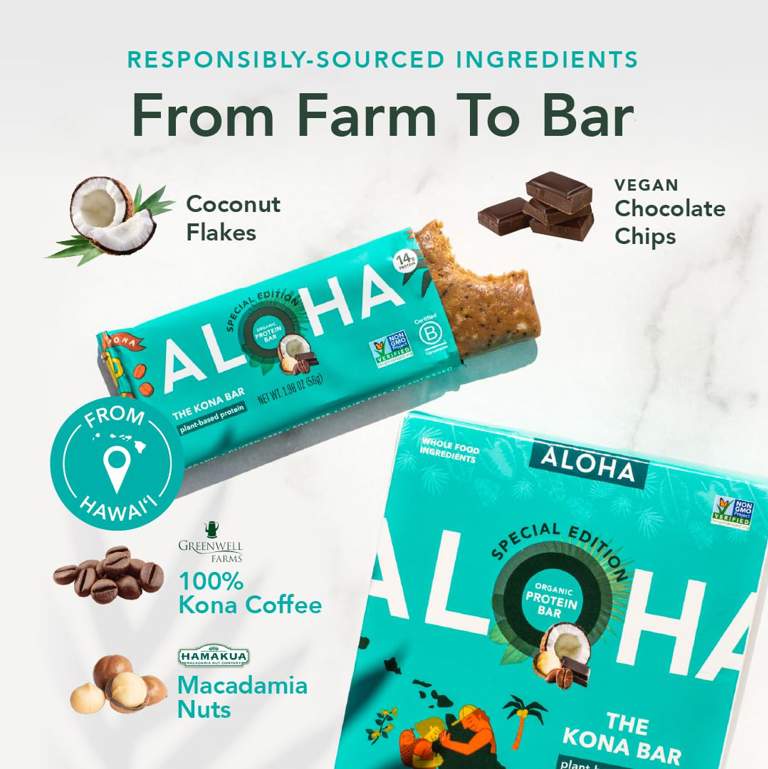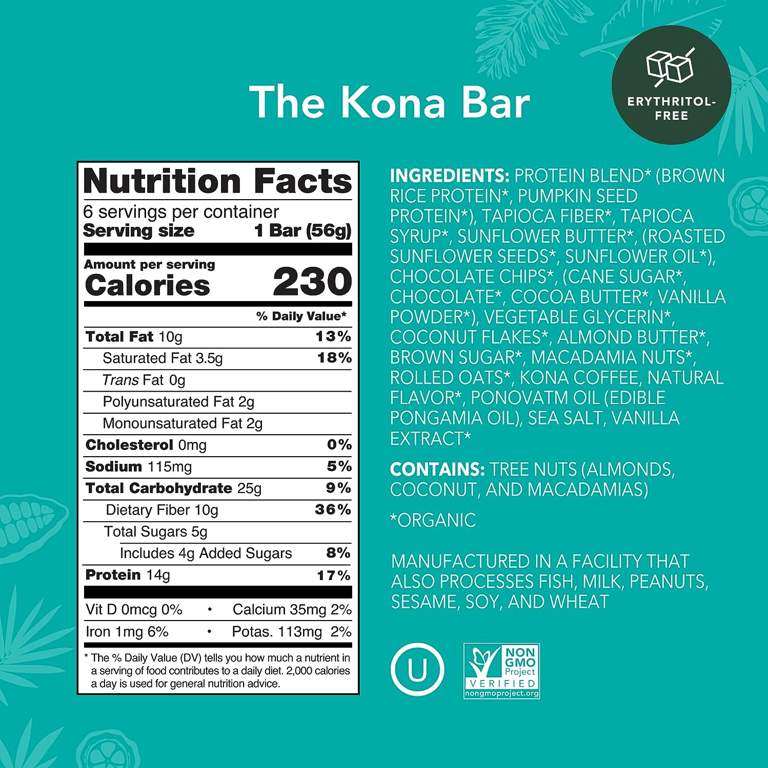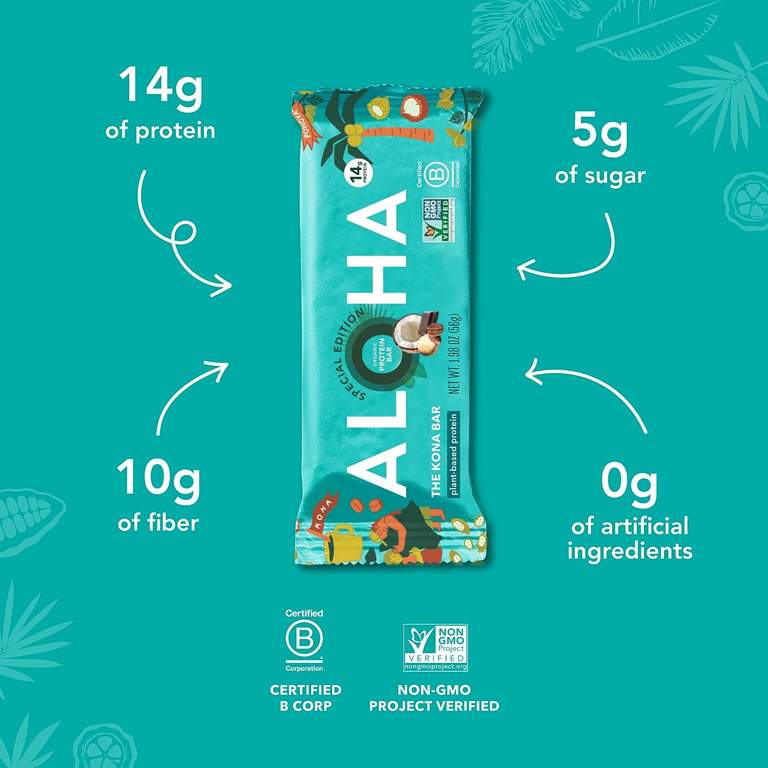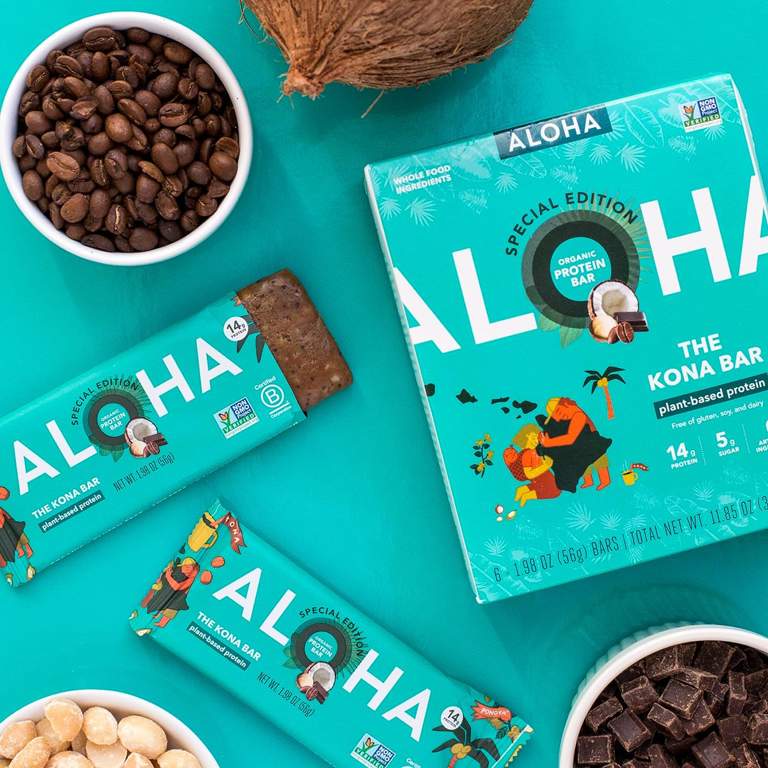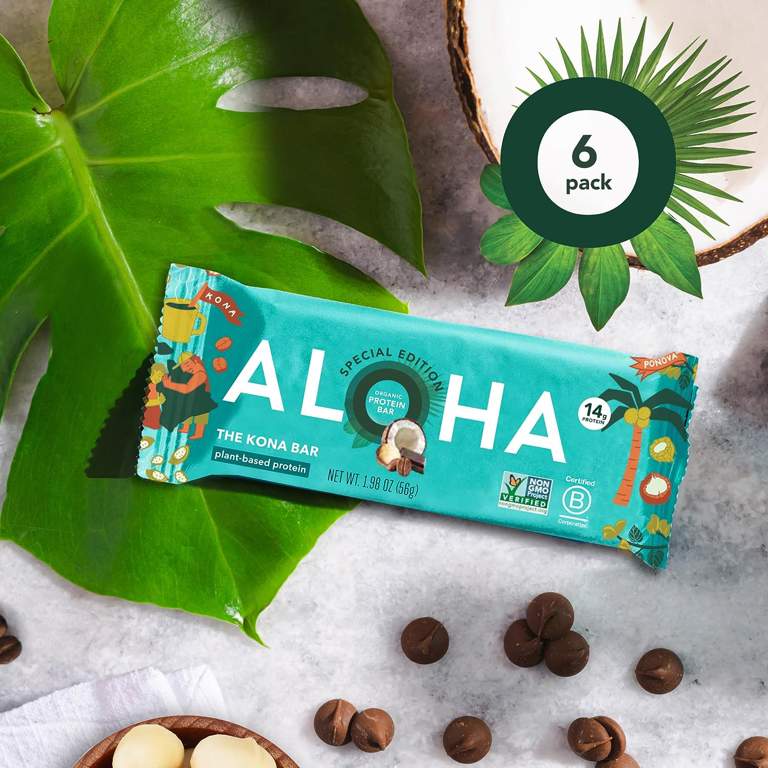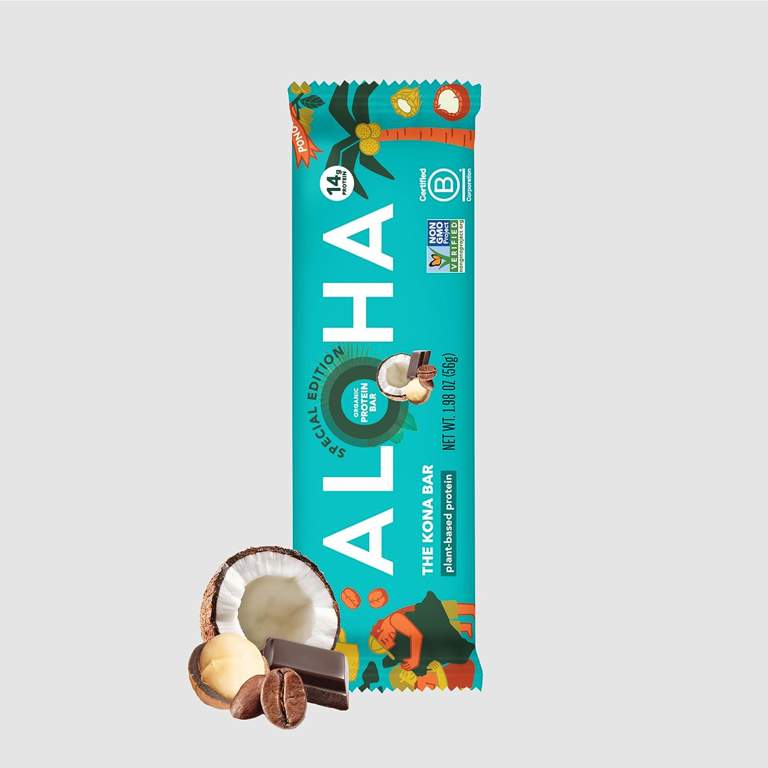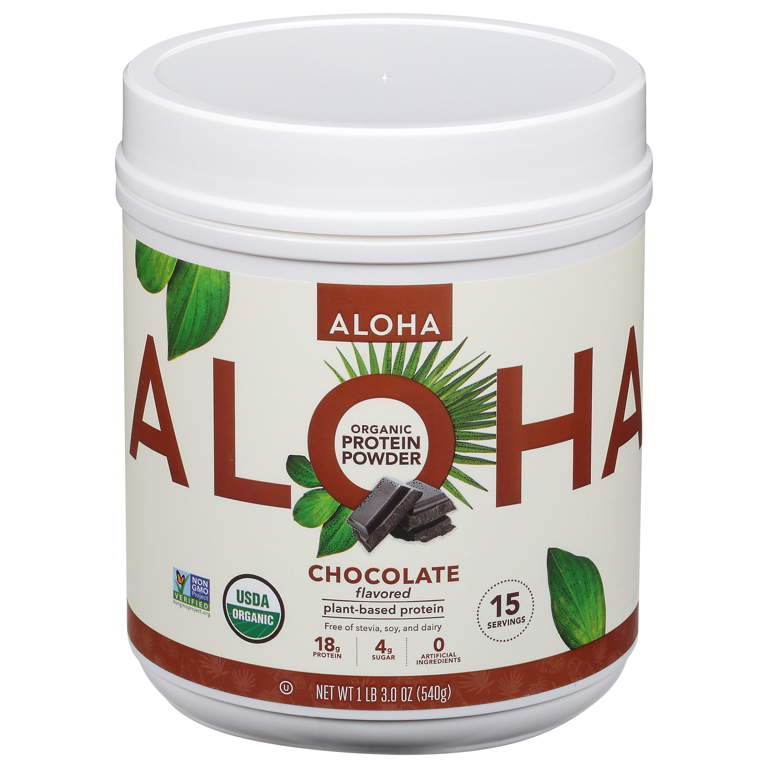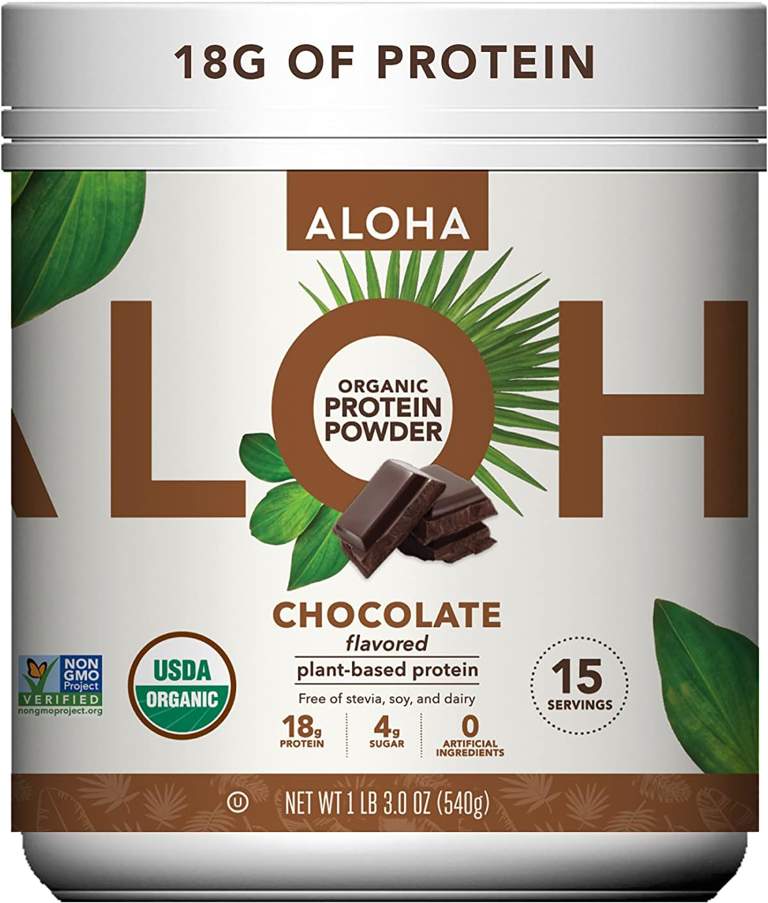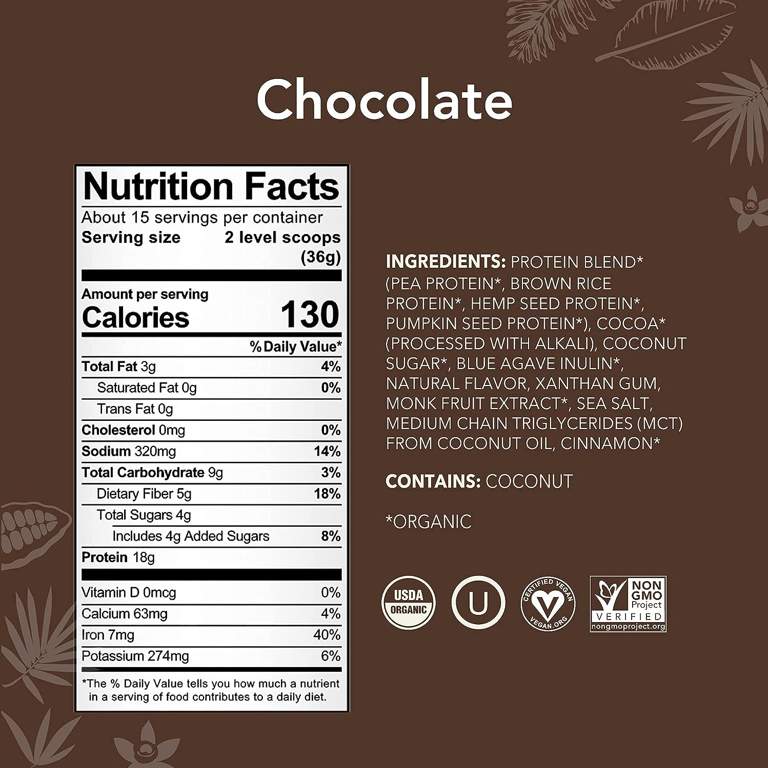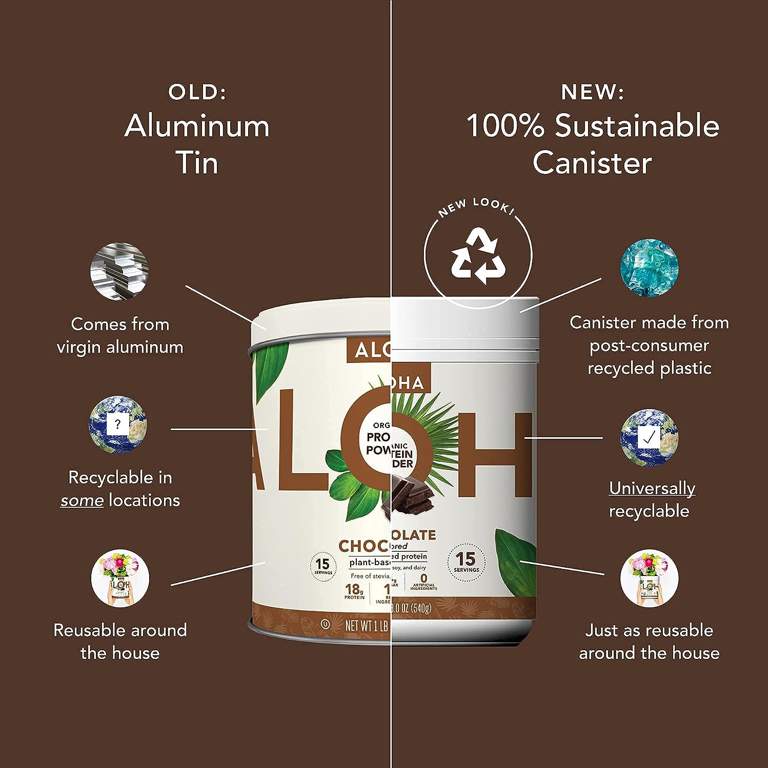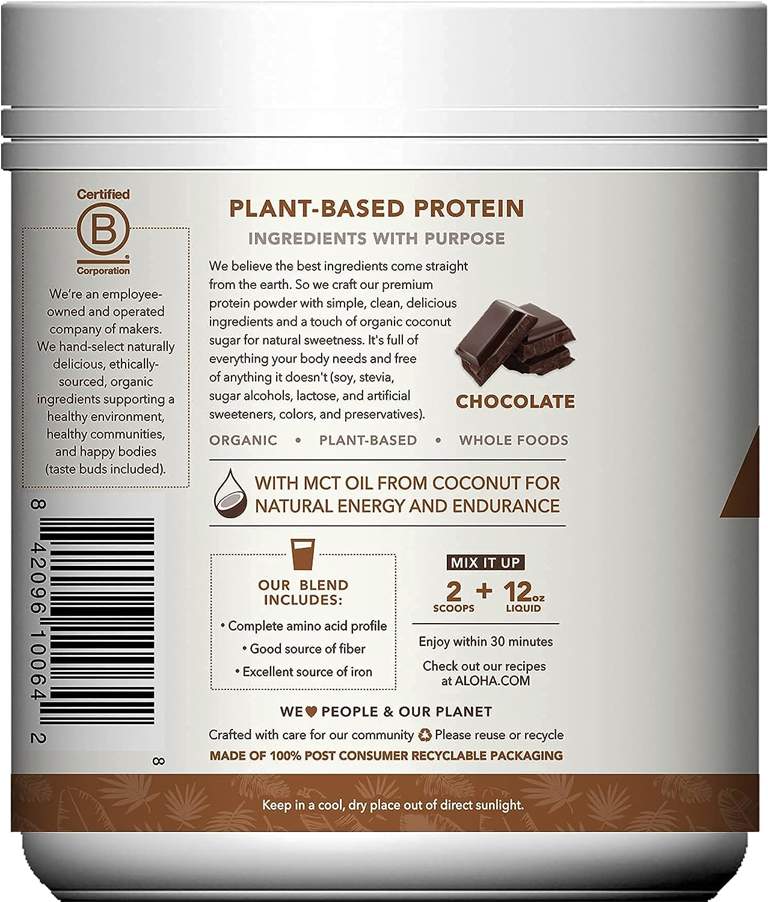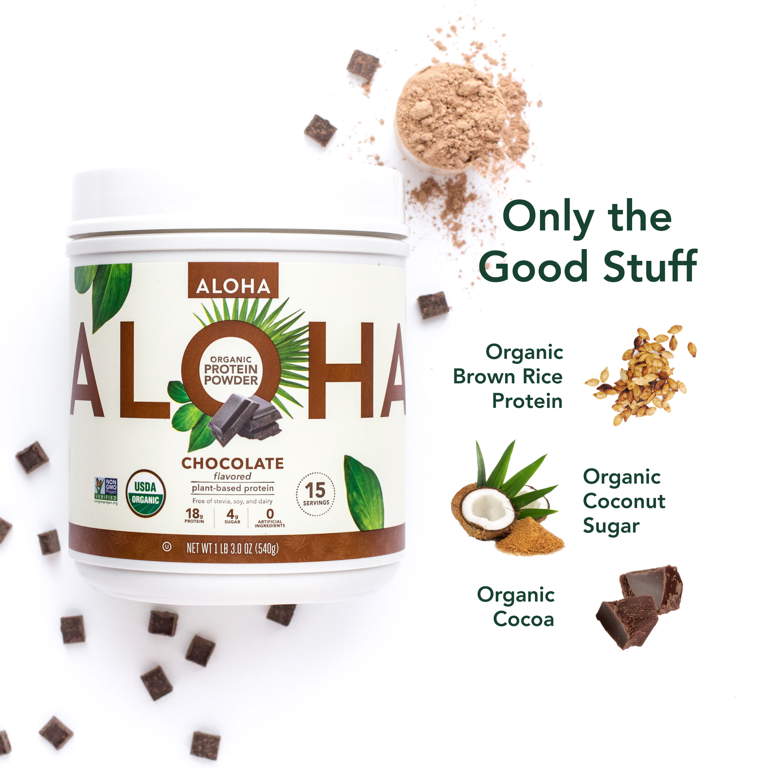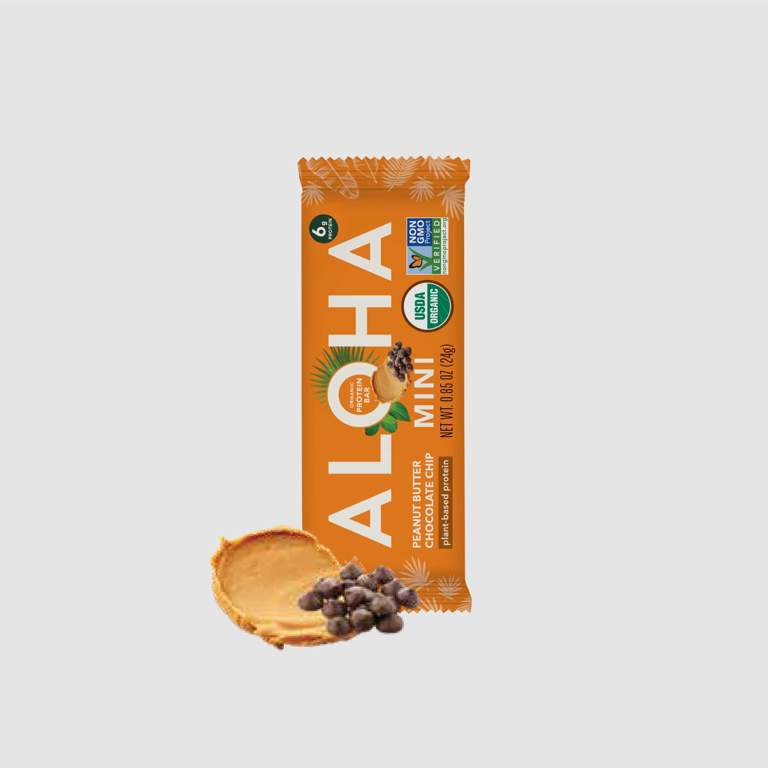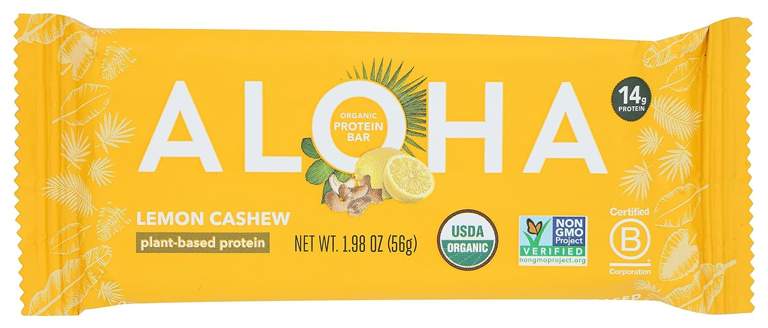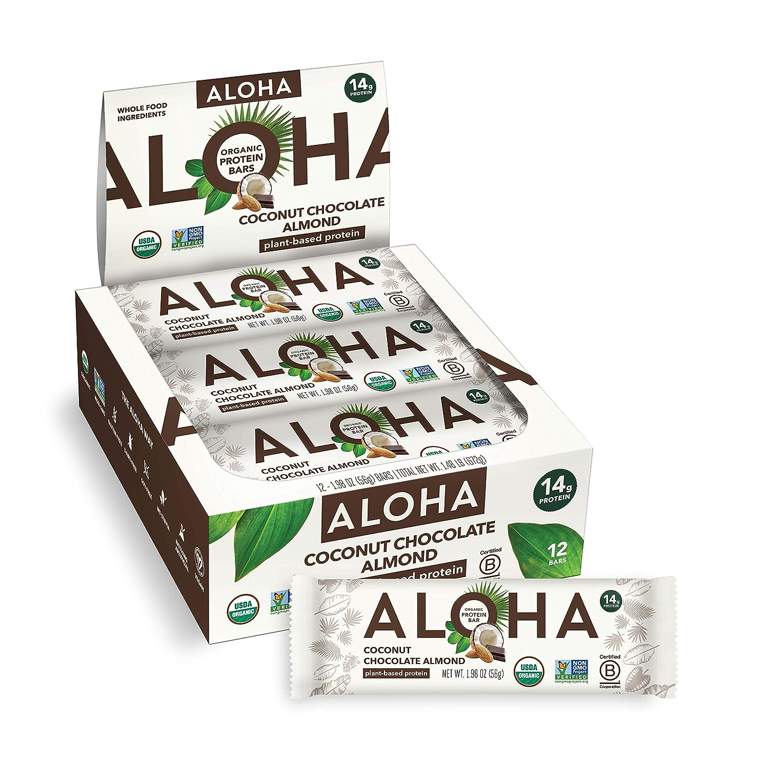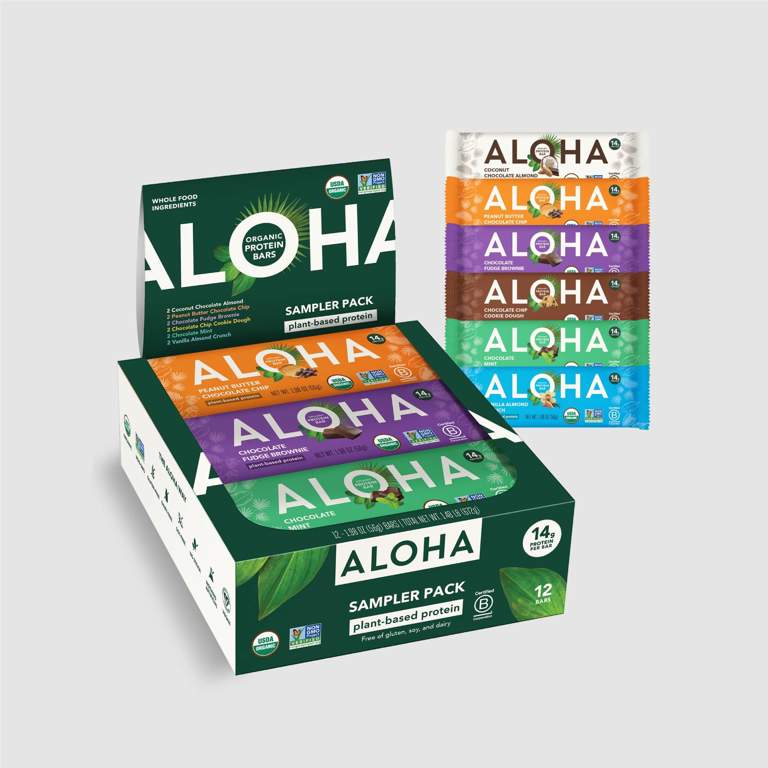Bestsellers for ALOHA Ingredients
In the sweet pursuit of a healthier lifestyle, many of us are turning to sugar substitutes as a way to indulge without the extra health risks. But navigating sugar substitutes can be sticky; with so many options out there, it's important to understand what these alternatives bring to our tables—and our bodies. At ALOHA, we're all about finding that blissful balance between enjoying life's sweeter moments and maintaining a nutritious diet. So let’s dive into the scoop on sugar substitutes—how they benefit your health journey and how you can incorporate them in ways that align with your path toward happiness and well-being.
Making Sense of Sugar Substitutes

Sugar substitutes are alternatives to traditional white sugar, allowing individuals to enjoy the sweetness they crave without the same caloric intake or glycemic impact. These alternatives can be particularly beneficial for those managing diabetes, following a ketogenic diet, or those who are simply looking to reduce their overall sugar consumption; however, not all sugar substitutes are made equal. Sugar substitutes are available in several forms, such as natural sweeteners like stevia and monk fruit extract, sugar alcohols like xylitol and erythritol, and synthetic options like sucralose.
We've outlined the pros and cons of each to help you make the best choice for you.
Acesulfame Potassium
- Synthetic origin: Also known as Ace-K, acesulfame potassium is a synthetic, zero-calorie artificial sweetener found in many sugar-free products. It's synthesized from a combination of acetoacetic acid and potassium, providing sweetness without the added calories.
High intensity: With a sweetness level that is 200 times greater than sucrose (table sugar), Ace-K offers an intensely sweet experience. This means it can be used in very small quantities to achieve the desired level of sweetness but may leave a lingering aftertaste.
No calories: As a non-nutritive sweetener, Ace-K doesn't contribute to calorie intake, which makes it appealing for those looking to manage their weight or reduce caloric consumption while still enjoying sweet flavors.
Use in moderation: Despite its benefits, it's important to consume Ace-K in moderation. Overconsumption of any artificial sweetener may lead to potential health risks such as disrupting metabolic processes or affecting gut bacteria balance.
Health considerations: While the U.S. Food and Drug Administration (FDA) has approved Ace-K as an alternative sweetener, the use of Ace-K is controversial. Some studies have raised concerns about the long-term use of artificial sweeteners like Ace-K potentially being linked with an increased risk for certain health issues. However, these findings are not conclusive, and more research is needed.
Check labels carefully: Products containing Ace-K often include other low-calorie or no-calorie sweeteners like aspartame or sucralose. Consumers should read product labels thoroughly to understand what they're ingesting and how it fits into their dietary needs.
Aspartame
Synthetic origin: Aspartame is a widely used artificial sweetener created as an alternative to sugar for those looking to reduce their caloric intake.
High intensity: Approximately 200 times sweeter than table sugar (sucrose), which means it can provide the desired sweetness with just a tiny amount.
Calorie reduction: Because of its high sweetness potency, aspartame offers fewer calories per serving than traditional sugars, making it a popular choice for weight management and diet products.
Health considerations:
Phenylketonuria (PKU): Individuals with PKU—a rare inherited metabolic disorder—cannot metabolize phenylalanine, one of the components of aspartame. Products containing this sweetener must be labeled accordingly.
Potential neurological risks: Some studies have suggested potential health risks associated with long-term consumption, including headaches or adverse neurological effects; however, regulatory agencies like the FDA maintain that it is safe for general consumption at approved levels.
Allergic reactions: While rare, some people may experience allergic reactions such as hives or swelling after consuming products containing aspartame.
Erythritol
Natural origin: Erythritol is a sugar alcohol that naturally occurs in certain fruits like grapes, melons, and pears, but when used as a sweetener in foods, it's done so at a rate 1,000 times higher than what's naturally occurring in fruit. As a sugar alcohol, it's part of a category of compounds that resemble both sugars and alcohols.
Low-calorie sweetness: It provides roughly 70% of the sweetness you'd get from sucrose (table sugar) but comes with only 5% of the calories, making it an attractive option for those watching their caloric intake.
Moderate intensity: Despite being less potent than some high-intensity sweeteners like monk fruit or stevia extracts, still offers considerable sweetness and should be used sparingly compared to regular sugar due to its concentrated nature.
Potential health risks: While is generally considered safe for consumption by many health authorities including the FDA, there are potential health risks associated with excessive use:
Digestive discomfort: Overconsumption can lead to digestive issues such as bloating and diarrhea because the body does not fully absorb sugar alcohols.
Allergic reactions: Though rare, some individuals might experience allergic reactions. Symptoms could include hives or swelling.
Increased risk of heart attack and stroke: Higher blood levels of erythritol were associated with potential cardiac health risks in an NIH-funded study led by Dr. Stanley Hazen at the Cleveland Clinic.
Not always on nutrition labels: Eryrithitol is not required to be listed individually on Nutrition Facts labels, so you might not know it's in your food. At ALOHA, we never use erythritol or other sugar alcohols, so you don't have to worry about it sneaking into your snack.
To learn more about erythritol, read our article on sugar alcohols.
Stevia Leaf Extract (Rebiana)
Natural origin: Stevia is a natural sweetener derived from the leaves of the stevia plant native to South America.
High intensity: Stevia is renowned for its high intensity, being up to 350 times sweeter than sugar.
Zero calories: Stevia contains no calories or carbohydrates, making it an ideal choice for those looking to reduce their sugar intake.
Use moderately: Due to its potent sweetness, it's important to use stevia sparingly in comparison with table sugar.
Check labels carefully: Always check packaging labels for additional ingredients such as sugars and bulking agents that may be used in addition to stevia.
Potential health risks: High amounts of stevia consumption may lead to potential health risks like gastrointestinal symptoms or allergic reactions in sensitive individuals.
Flavor: Some people experience a licorice-like aftertaste with stevia-based sweeteners which varies depending on food or beverage pairings. Typically, baked foods with stevia have a more pronounced aftertaste than beverages do.
Monk Fruit Extracts (Lo Han Guo)
Natural origin: Comes from a small melon-like fruit grown in southern China.
Sweet scale: It's 150-200 times sweeter than regular sugar. A little goes a long way.
Calories: Does not contain sugar, carbs, or calories.
Potential health benefits: When used in place of sugar, monk fruit extract may decrease your overall sugar and carbohydrate intake. Does not promote tooth decay. Contains antioxidant and anti-inflammatory properties.
Potential health risks: Monk fruit extracts are deemed Generally Recognized As Safe (GRAS) by the U.S. Food and Drug Administration (FDA), and compared to artificial sweeteners, monk fruit is a safe sugar alternative without known health risks. Some individuals might experience allergic reactions or gastrointestinal discomfort when consuming products containing monk fruit extracts due to sensitivities.
Flavor: Monk fruit has a slightly fruity aftertaste.
When incorporating these alternatives into your diet, remember:
Consult health professionals: Always talk to your doctor before using any new sweeteners if you have health concerns.
Benefits of Eating Less Sugar

Reducing sugar in your diet isn't just about reducing calories but improving your overall well-being. Here are some advantages you might experience when you eat less sugar:
Weight management: Less sugar means fewer empty calories, which can help prevent weight gain and promote weight loss.
Stable energy levels: Reducing sugar intake can prevent the spikes and crashes in energy that come from high-sugar foods.
Improved dental health: Eating less sugar reduces the risk of tooth decay and cavities since sugary environments promote bacterial growth in your mouth.
Better heart health: Lowering your sugar consumption can decrease the risk of heart disease by reducing inflammation and blood pressure levels.
Enhanced mental clarity: Some people find that cutting back on sugar helps with focus and cognitive function, as excess sugar has been linked to brain fog.
To enjoy these benefits:
Choose whole foods: Opt for fruits, vegetables, nuts, seeds, and whole grains, or snacks made from those ingredients.
Read labels carefully: Look for hidden sugars or artificial sweeteners in ingredient lists—anything ending in '-ose' is usually a type of sugar.
Cook at home when you can: This way you control what goes into your meals.
Remember that moderation is key. You don't have to eliminate all sweetness from your life—just make smarter choices about where it comes from.
The ALOHA Approach to Sugar Alternatives

At ALOHA, we understand that reducing sugar intake is a key component of maintaining a healthy lifestyle. However, the choice of sweetener can be just as important as the decision to cut back on sugar itself. Our commitment to your wellness journey means we carefully select natural sweeteners that enhance our products without compromising taste or quality, and we never use stevia or sugar alcohols in our foods.
Brown rice syrup: This alternative offers a mildly sweet flavor and serves as an excellent energy source. The complex carbohydrates in brown rice syrup break down slowly, providing a steady release of energy over time.
Cane sugar: While we minimize its use when cane sugar is included in our products it's always organic and non-GMO. It provides sweetness with the familiar taste many people enjoy.
Dates and date syrup: Dates provide whole fruit, natural sweetness. The fiber content present in dates aids digestion by promoting gut health and regularity.
Organic coconut sugar is sustainably sourced from the sap of coconut palm trees, ensuring minimal environmental impact. Its low glycemic index may result in less dramatic blood glucose fluctuations after consumption than regular table sugar. Additionally, it contains trace amounts of vitamins and minerals, adding subtle nutritional value to its sweetening properties.
Organic monk fruit extract: Monk fruit delivers sweetness without added calories, which can benefit those managing weight or looking for calorie-free options. Monk fruit extract has gained popularity due to its ability to replace traditional sugars and not raise blood glucose levels significantly after ingestion.
Tapioca syrup: Tapioca syrup, derived from cassava root, is a natural alternative to high-fructose corn syrup with a neutral flavor profile.
FAQ
What are the primary benefits of reducing sugar intake?
Cutting down on sugar can lead to weight loss, stable energy levels, improved dental health, reduced risk of heart disease, and better mental clarity, among other benefits.
Is honey a better option than table sugar for diabetics?
Honey has a lower glycemic index than table sugar, which might lead to a less significant blood sugar spike. However, it is still high in calories and should be used cautiously by diabetics. Monk fruit may be safer as it doesn't change your blood sugar levels.
Are there any natural sweetener substitutes that also provide nutrients?
Monk fruit contains antioxidants and has anti-inflammatory properties.
Which sugar substitute is beneficial for someone following a keto diet?
Monk fruit sweetener is suitable for a keto diet because it does not have carbohydrates or calories.
For someone monitoring their calorie intake, which sugar substitute would be recommended?
Monk fruit sweetener is a great option as it has no calories and is much sweeter than sugar, requiring less quantity for the same sweet result.
Is there any risk of tooth decay with natural sweeteners?
Like sugar, natural sweeteners can contribute to tooth decay, especially if dental hygiene is not maintained, although some, like monk fruit, can be less harmful than others.
Can sweeteners cause digestive issues?
Some people might experience digestive issues with certain sweeteners, especially sugar alcohols, which can cause gas, bloating, and diarrhea in some individuals.
ALOHA does not provide medical advice, diagnosis, or treatment. Any information published on this website or by this company is not intended as medical advice. Always consult a qualified health or mental health professional with any questions or concerns about your physical or mental health.
ALOHA Buying Guide

ALOHA Organic Plant-Based Protein Powder, Vanilla, 1.14 Pounds (518g) (Packaging May Vary)
ALOHA Organic Plant-Based Protein Powder is a vegan protein powder with 18g of clean, organic, plant-based protein per pouch. It contains 200mg omega-3s and provides an excellent source of magnesium & iron. It is also USDA Certified Organic Non-GMO, Gluten-Free, Dairy-Free, Soy-Free and Vegan.
The ALOHA Organic Plant-Based Protein Powder is an ideal supplement for those looking to promote lean muscle development. Each pouch provides 18g of clean, organic, plant-based protein alongside 200mg of omega 3s and essential minerals such as magnesium and iron. This vegan protein powder is also certified organic by the USDA meaning it contains no preservatives or artificial ingredients. It is also gluten free, dairy free, soy free and vegan friendly! All these features make the ALOHA Organic Plant Based Protein Powder an easy choice for anyone looking for a healthy source of nutrition.
- Organic and Plant-Based ingredients promote a healthier lifestyle
- The delicious Vanilla flavor adds a sweet touch to your protein shakes
- As it is a Protein Powder, it helps in muscle recovery and growth
- A good source of protein for those on a vegan or vegetarian diet
- At 1.14 Pounds (518g), it provides a good quantity that lasts for an extended period
- Packaging is sturdy and ensures the product remains fresh
- The product is easy to mix with water, milk, or any preferred beverage without forming lumps.
ALOHA Organic Plant Based Protein Bars | The Kona Bar - Special Edition | 6 Count, 1.98oz Bars | Vegan, Low Sugar, Gluten Free, Paleo, Low Carb, Non-GMO, Stevia Free, Soy Free, No Erythritol
ALOHA's Organic Plant Based Protein Bars are vegan, low sugar, gluten free, paleo friendly and contain 14 grams of USDA organic plant-based protein.
The ALOHA Organic Plant Based Protein Bars are a delicious and healthy snack option. They are made with local ingredients from Hawai’i such as 100% Kona Coffee, 100% Hawai’i-grown Macadamia Nuts and Ponova oil from O'ahu's North Shore. The bars contain 14 grams of USDA organic plant-based protein as well as 10g of fiber and only 5g of sugar per bar, making them an excellent choice for those looking for a nutritious snack. Furthermore, the bars are vegan, Non-GMO, gluten free snacks that are Soy-Free, Dairy-Free and Stevia-Free. Finally, 10% of proceeds from the bars will be donated to Kupu to support agricultural education programs in Hawaii – a nice touch!
- Organic Plant Based Protein: Consumers love the fact that these bars are made from organic plant-based protein, making them a great source of protein for vegans and vegetarians.
- Special Edition Kona Flavor: The unique Kona flavor is a hit among customers, who appreciate the novelty and taste of this special edition.
- Low Sugar: Customers appreciate that these bars are low sugar, making them a healthier snack option.
- Gluten Free and Paleo: These bars are gluten free and paleo, which fits perfectly into the dietary needs of many consumers.
- Non-GMO: The fact that these bars are Non-GMO is highly valued by consumers who are careful about their food choices.
- Free from Stevia, Soy and Erythritol: Customers value the absence of Stevia, Soy and Erythritol in these bars, making them a clean eating option.
- Low Carb: The low carb count is appreciated by customers who are watching their carbohydrate intake or following a keto diet.
Plant-Based Protein Powder | Organic Chocolate Keto Friendly Vegan Protein with MCT Oil, 19 oz, Makes 15 Shakes, Vegan, Gluten Free, Non-GMO, Stevia Free & Erythritol Free, Soy Free, Dairy Free & Only 4g Sugar
Plant-Based Protein Powder with Organic Chocolate, Keto Friendly, Vegan, Gluten Free, Non-GMO, Stevia Free & Erythritol Free, Soy Free, Dairy Free and Only 4g Sugar.
This Plant-Based Protein Powder is an excellent choice for those looking for a healthy and delicious way to get their daily protein intake. It is vegan and contains no soy or dairy meaning it can be enjoyed by most dietary restrictions. Plus it is keto friendly with only four grams of sugar per serving! It also contains MCT oil giving it a boost of natural energy that will keep you going throughout the day. Finally, this product is free from both stevia and erythritol making it a great choice for those who want to avoid artificial sweeteners.
- Plant-Based: The protein powder is vegan-friendly, making it suitable for those following a plant-based lifestyle.
- Keto Friendly: With MCT Oil included, it is ideal for those on a ketogenic diet.
- Low Sugar: Containing only 4g of sugar, it's an excellent option for people looking to limit their sugar intake.
- Gluten and Soy Free: This product is perfect for those with dietary restrictions as it's free from gluten and soy.
- Dairy Free: Being dairy-free makes it an excellent choice for lactose-intolerant individuals or those avoiding dairy.
- Non-GMO: The protein powder is non-GMO, indicating a commitment to natural ingredients and health.
- Free from Stevia and Erythritol: This product does not contain stevia or erythritol, making it a great choice for those who prefer to avoid these sweeteners.




